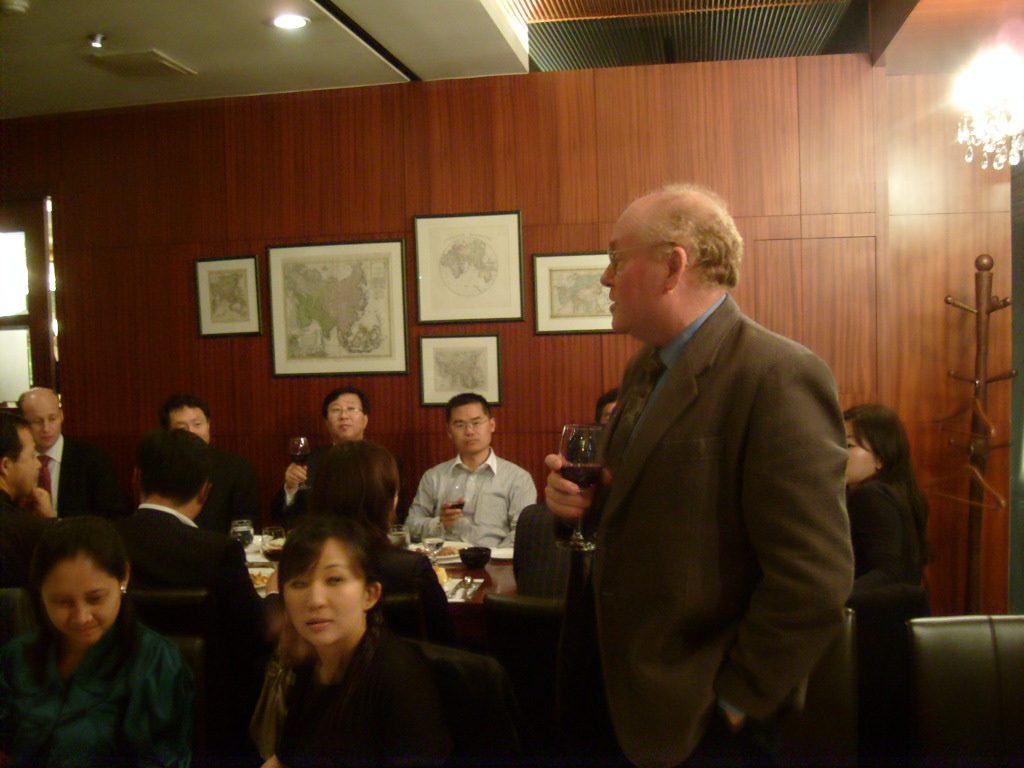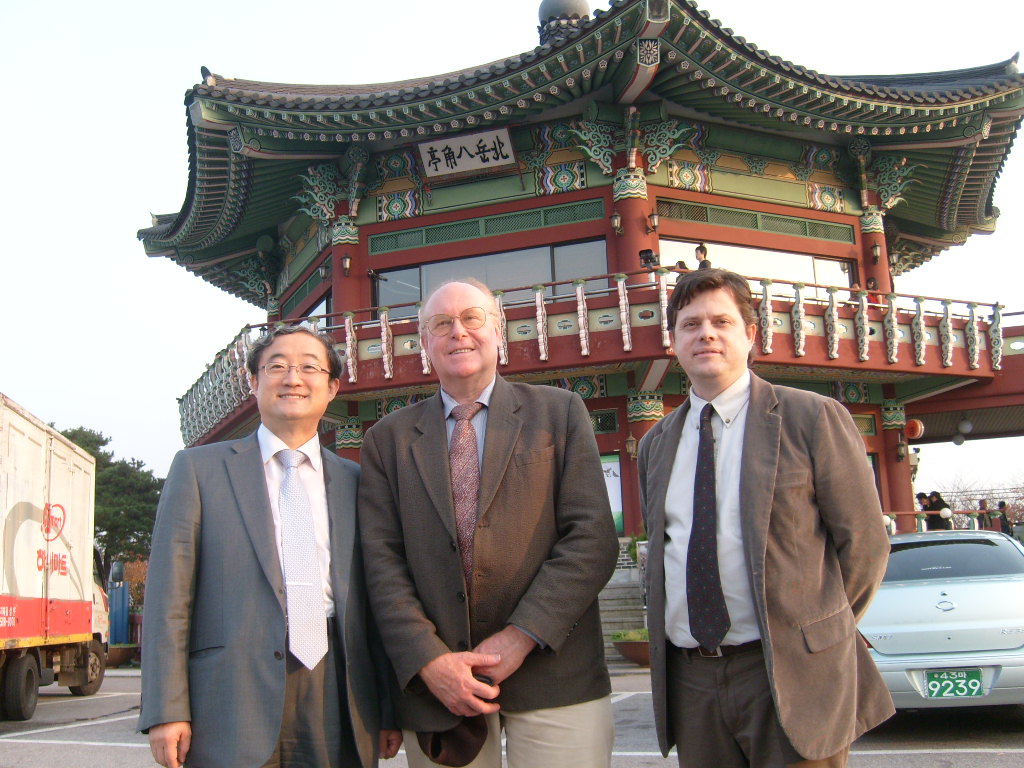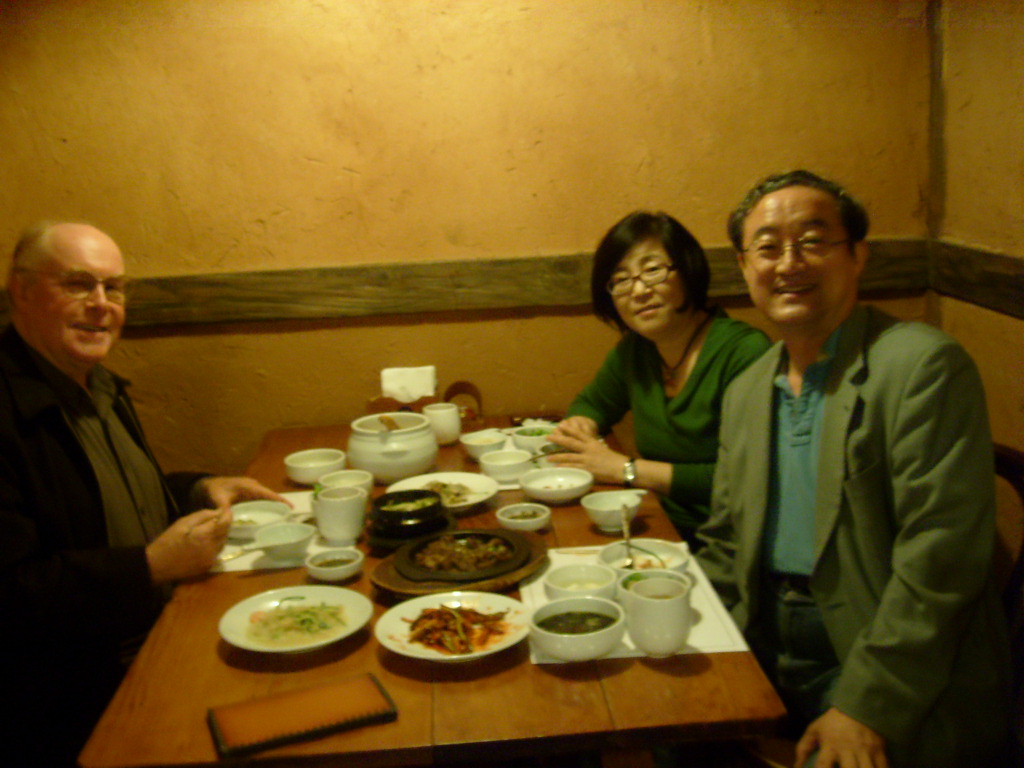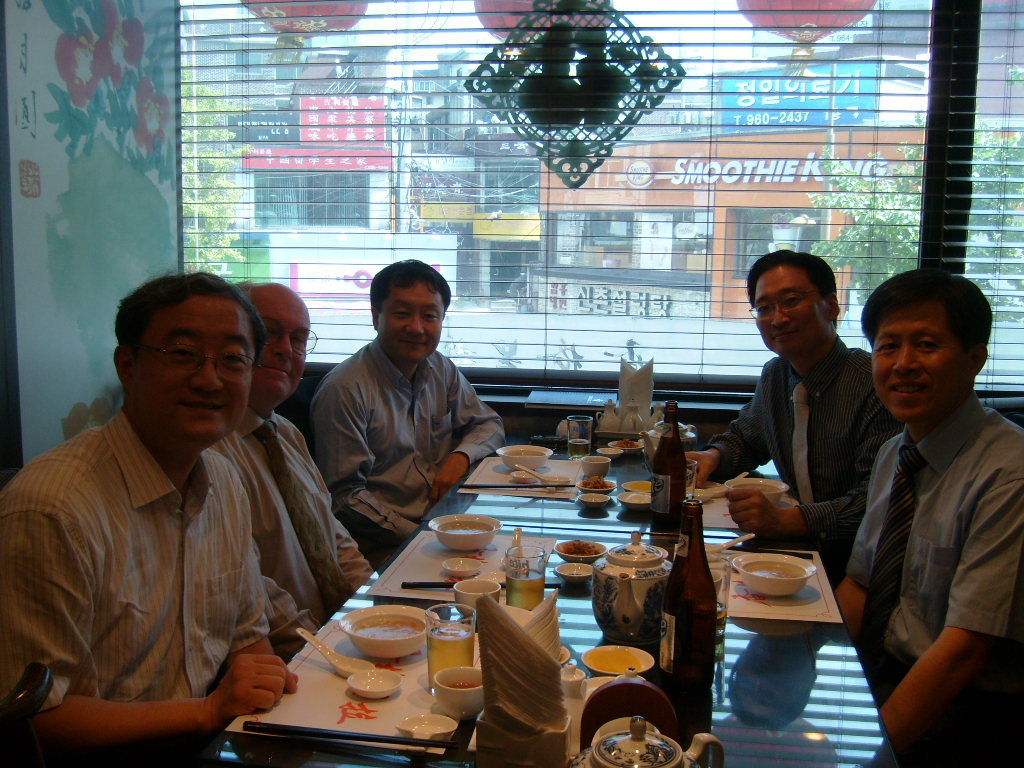
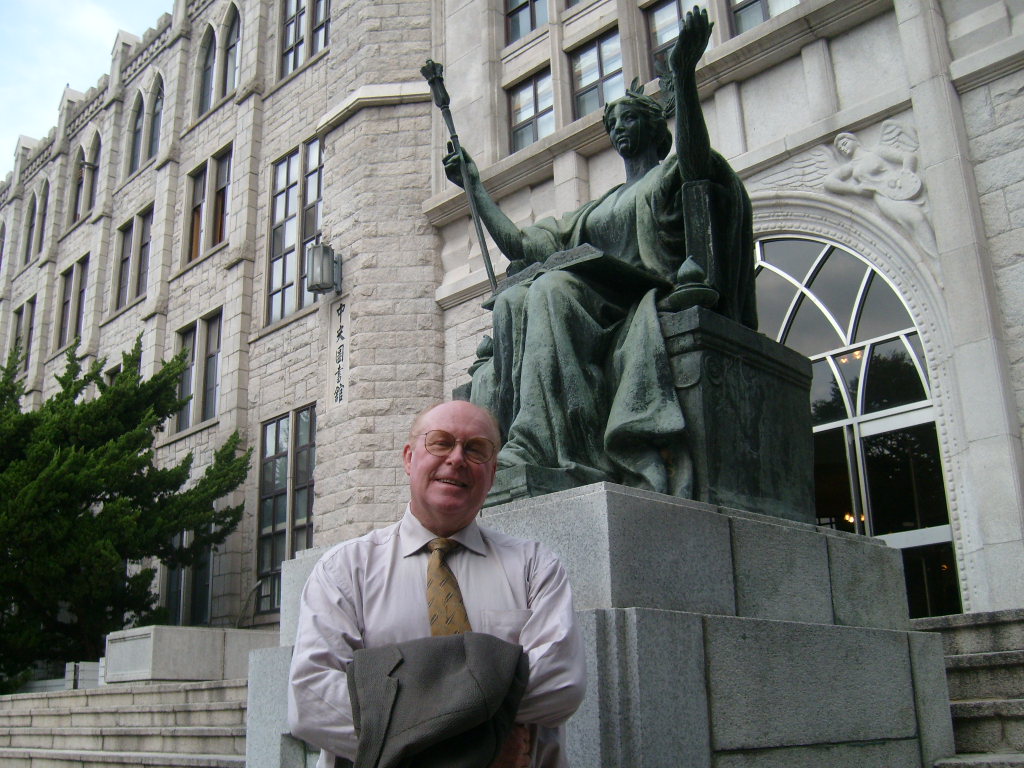
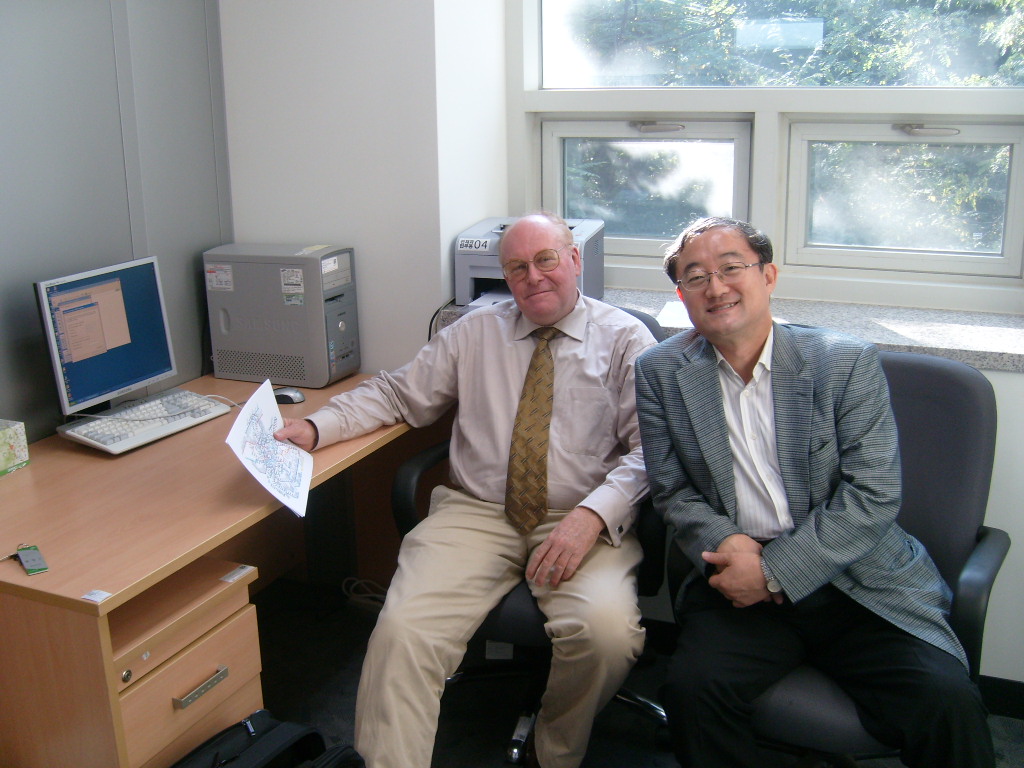
Kyung Hee University has implemented the International Scholar programme to expedite its academia "Towards Global Eminence.
It's purpose is to invite world famous scholars to Kyung Hee campus for the lecture to Kyung Hee students, collaborative works with Kyung Hee academics and ultimately the publishing of such results at SCI journals.
For the success of the programme, it is important that the host professor has intimate relationship with the invitee, and that the invitee has great interest in Kyung Hee University, and, in particular, good research records.
To make it short, what the University administration wants is the invitee should be capable of teaching in English, research and publishing articles in those SCI/SSCI/AHSI journals, which could be conducive to enhancing the school's reputation. The invitee is required to make an employment agreement with Kyung Hee University and to stay more than one month enough to do such job on campus.



It occurred to me that Prof. Graham Greenleaf of New South Wales in Australia is most elibible for the International Scholar Programme. I asked him whether he wanted to come to Seoul.
It is for the first time in KHU Law School after its establishment to invite a foreign scholar. So I explained to my colleagues my plan for the consent to the invitation of Prof. Greenleaf.
With the OK sign from Graham, I forwarded his curriculum vitae and list of research publications to the University Administration, attached by my recommendation and the statement of consent from the mojority of KHU Law Faculty.
Graham advised me of his plan to visit Korea at the end of September 2009 when his daughter's vacation begins.
At that time, I was told that the University Committee on the Invitation of International Scholars was scheduled for in August 2009. So I had to hasten the invitation process.
The following matters should be decided on a provisional basis in consideration of Graham's suggenstions:
- The period of stay and itinerary such as visit, lecture, writing, travel, etc.;
- The available type of accommodation: on-campus house, studio in the neighborhood of campus or serviced residence in downtown;
- The advisable date of arrival and departure in line with academic calendar; and
- Other matters on the wish list.
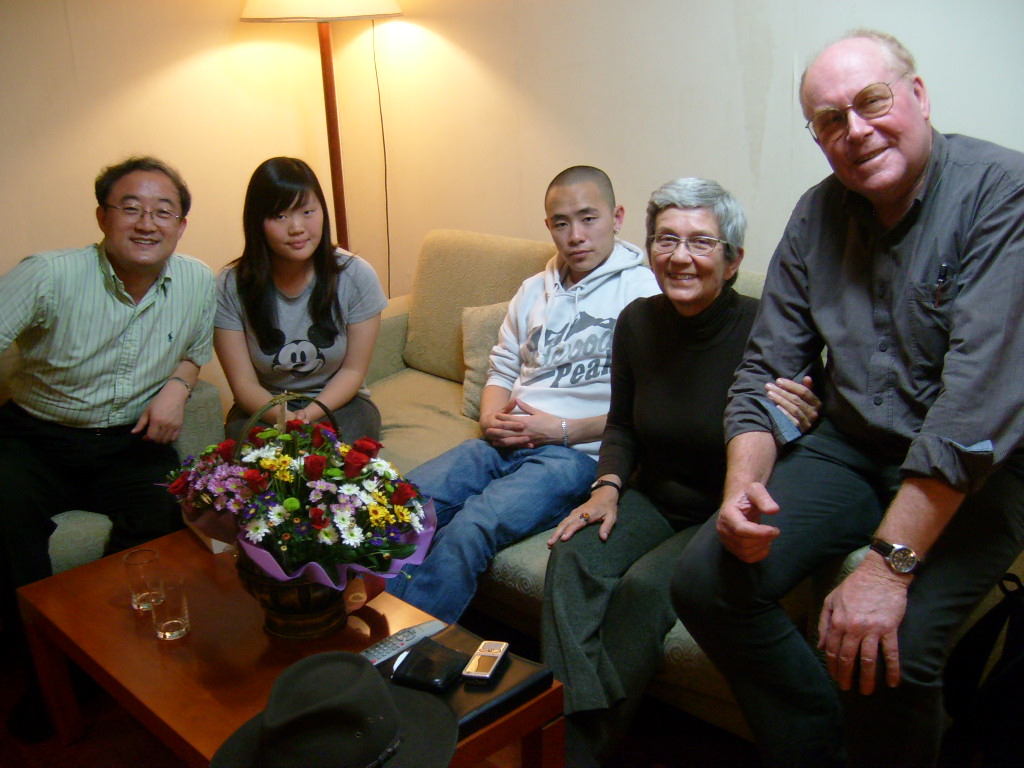
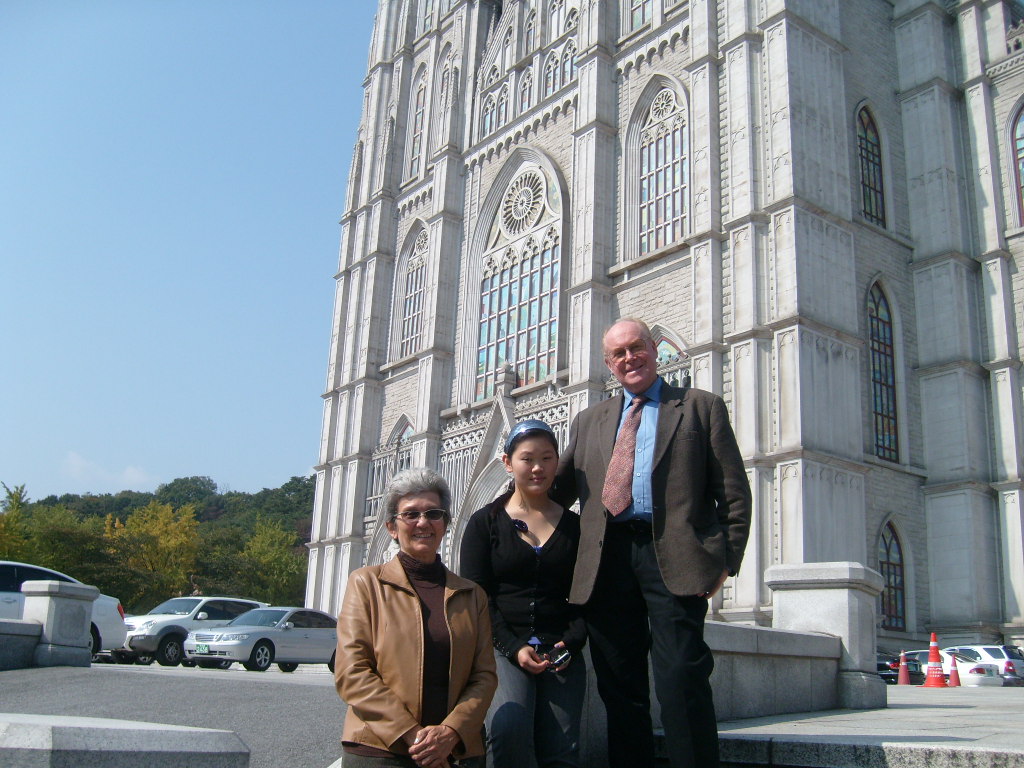
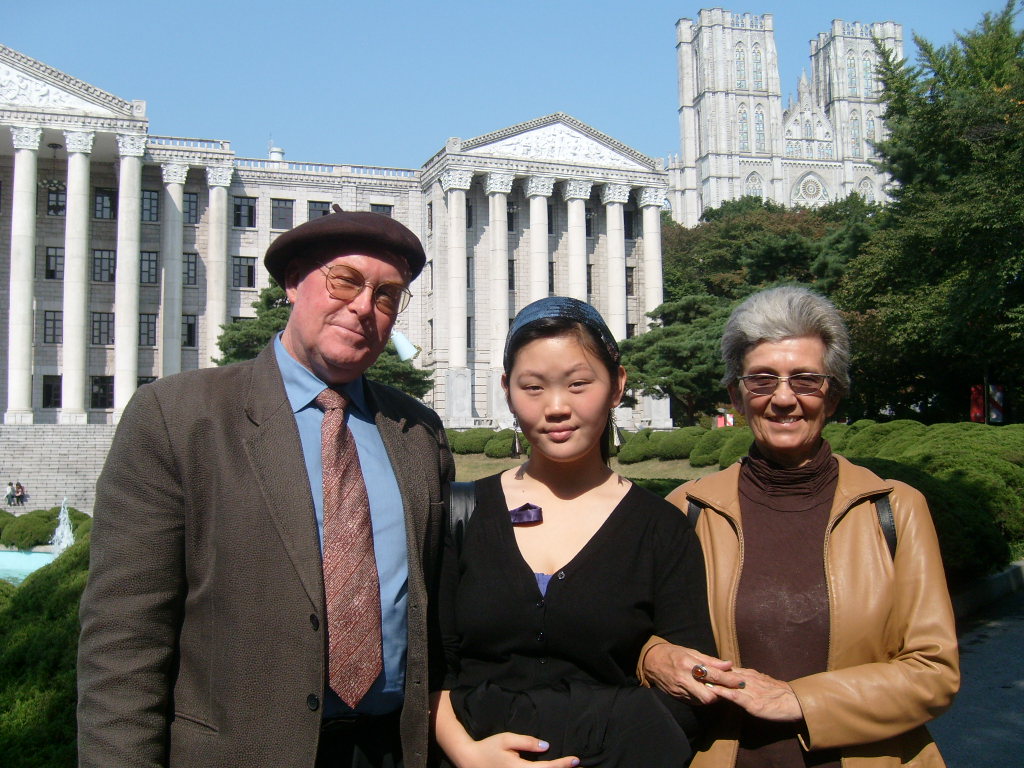
I advised him to make a flight reservation of economy class via an Australian travel agency. The airfare will be reimbursed by the University upon the submission of the voucher.
As the on-campus guest house is small-sized and scarce, I thought the serviced residence located at downtown would be convenient to Graham's family though it is a little bit expensive. I recommended him M Chereville Residence (02-3480-6000) near Gangnam Subway Station, which my family once used with convenience in June 2009.
M Chereville has various size of rooms, all of which are equipped with the Internet facilities, built-in refrigerator, kitchen, washing machine and furniture. And continental breakfast is served in the dining hall. Long-term guests are provided with big discount of accommodation cost, and Graham's family could benefit from such system.
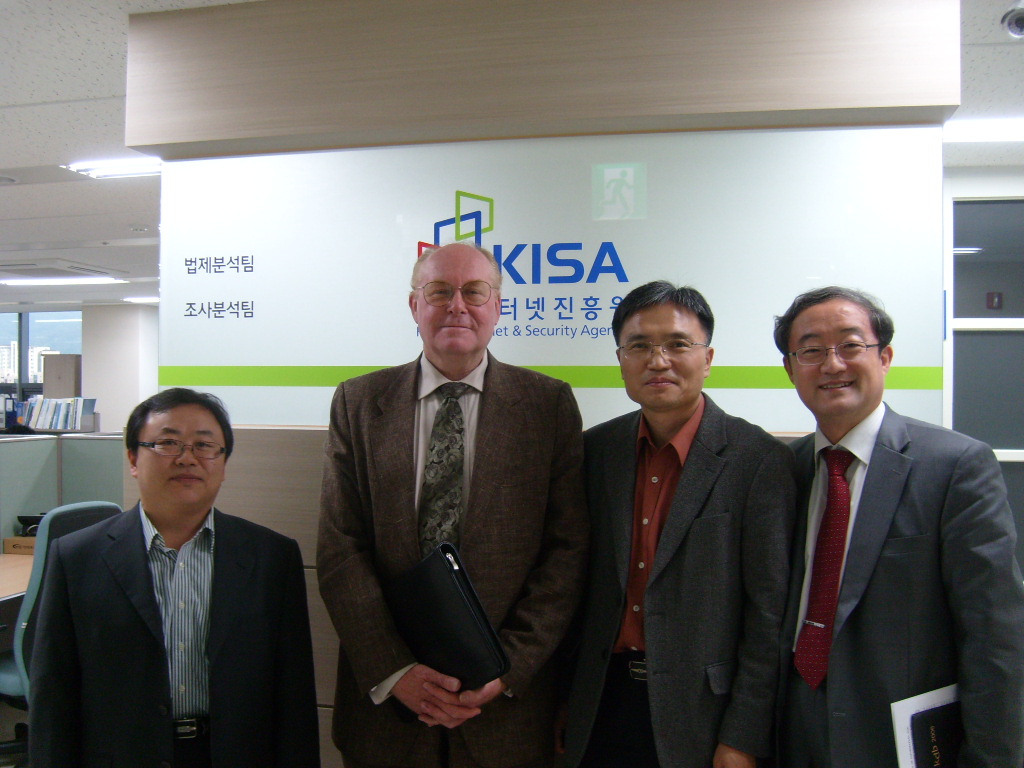
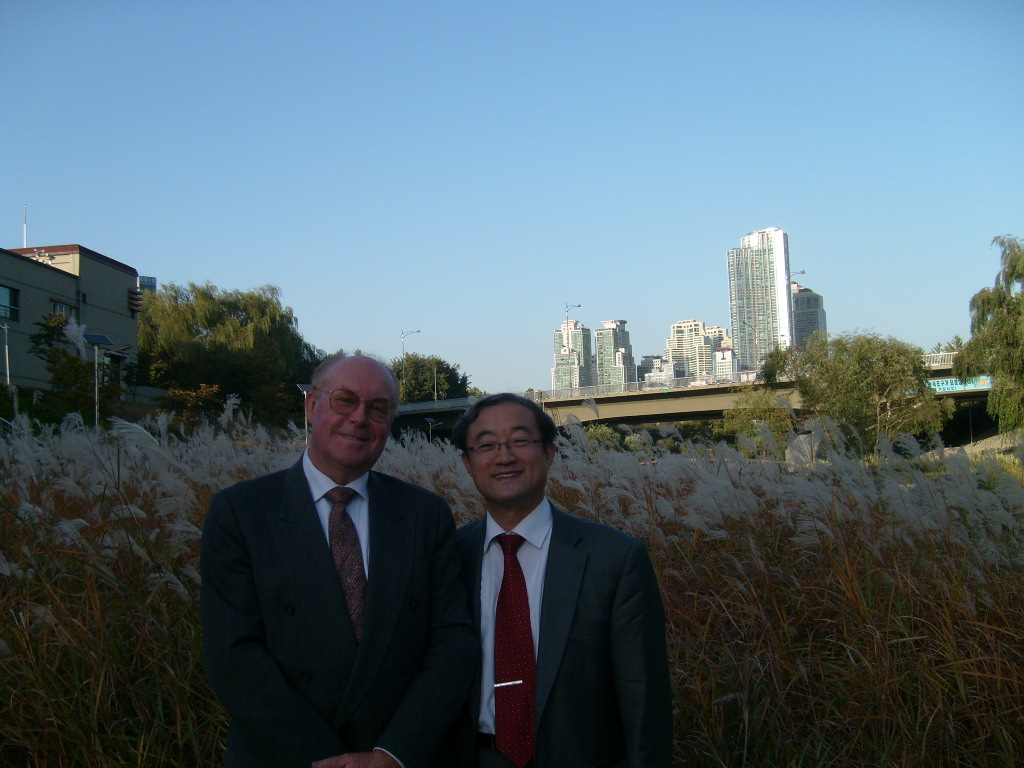
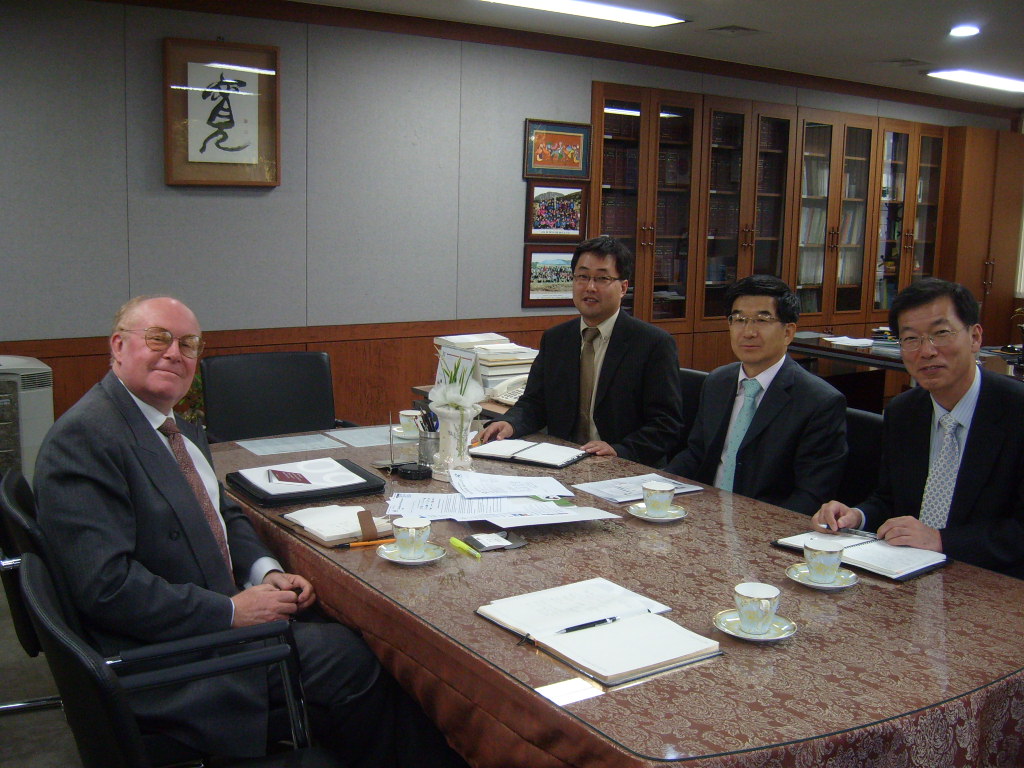
On August 14, 2009, the University Committee on the Invitation of International Scholars was convened to approve the candidate list of five scholars including Prof. Greenleaf.
I asked Graham to present certificates of academic degree and employment, and other documents required to apply for working visa.
As Graham will be employed by Kyung Hee University for the limited period of time, we discussed on the employment agreement, which should be subject to the approval of the NSW University Faculty of Law.
During the process, it was very convenient for us to exchange files through the Internet.
Though the working visa is very difficult to obtain, the University Foreign Service Center was in charge of the whole things instead of the host professor. A few days later, Graham was awarded the necessary visa for the Immigration Office. Upon the presentation of the visa approval number, Graham could obtain the visa without delay from the Korean Consulate Office in Sydney.
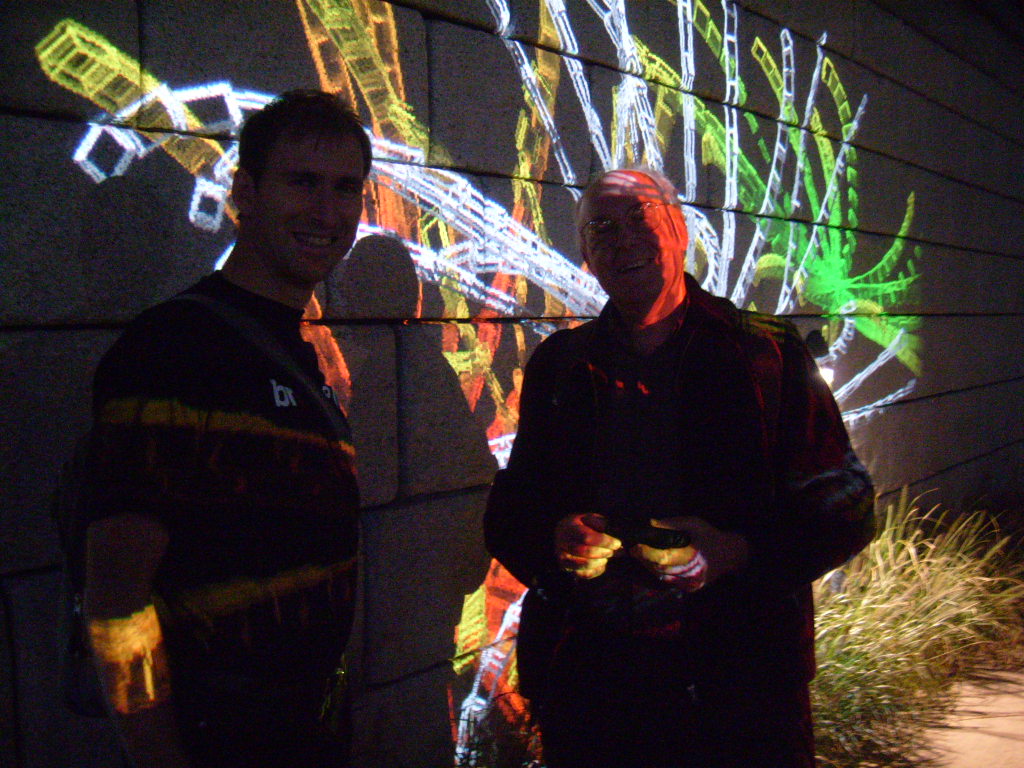
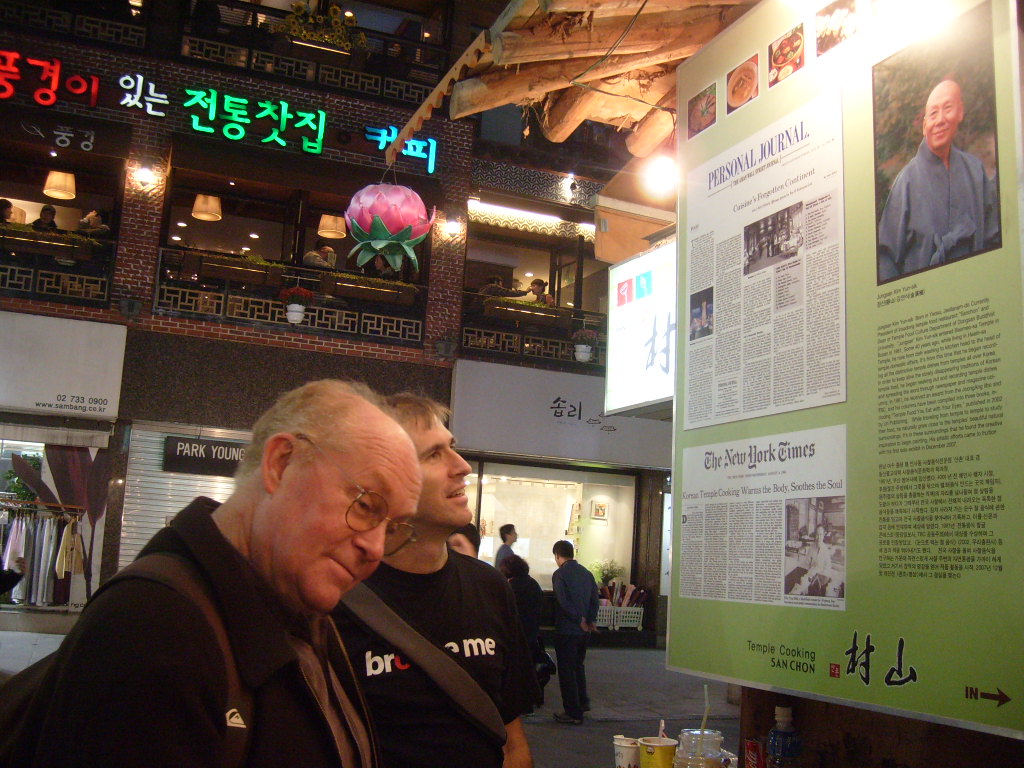

Graham's office on campus was reserved in the Law Library carrel. With the cooperation of the Library, a desktop computer equipped with the Internet and English readable software, a printer and stationery were set up in his office.
Finally around 6 o'clock on September 28, 2009, Graham's family arrived at Incheon Airport in safety.
I arranged that Graham could rent mobile phones, and gather traveling information and others at the Airport terminal.
All of a sudden, reporters from the Kookmin Daily Newspaper were there to interview Graham's family. It was because Mr. and Mrs. Greenleaf have adopted one boy and one girl from Korea. It seemed that Graham's children came to their homeland, Korea, to celebrate Chusok, Korean Thanksgiving.
The resultant one-page story appeared on the newspaper two days later.
Because the interview was insufficient to make an article, the reporter came with us to the residence.
When we entered the room at the residence, we found the concierge had delivered a chrisanthemum basket and a bottle of white wine in the name of the dean of KHU Law School.

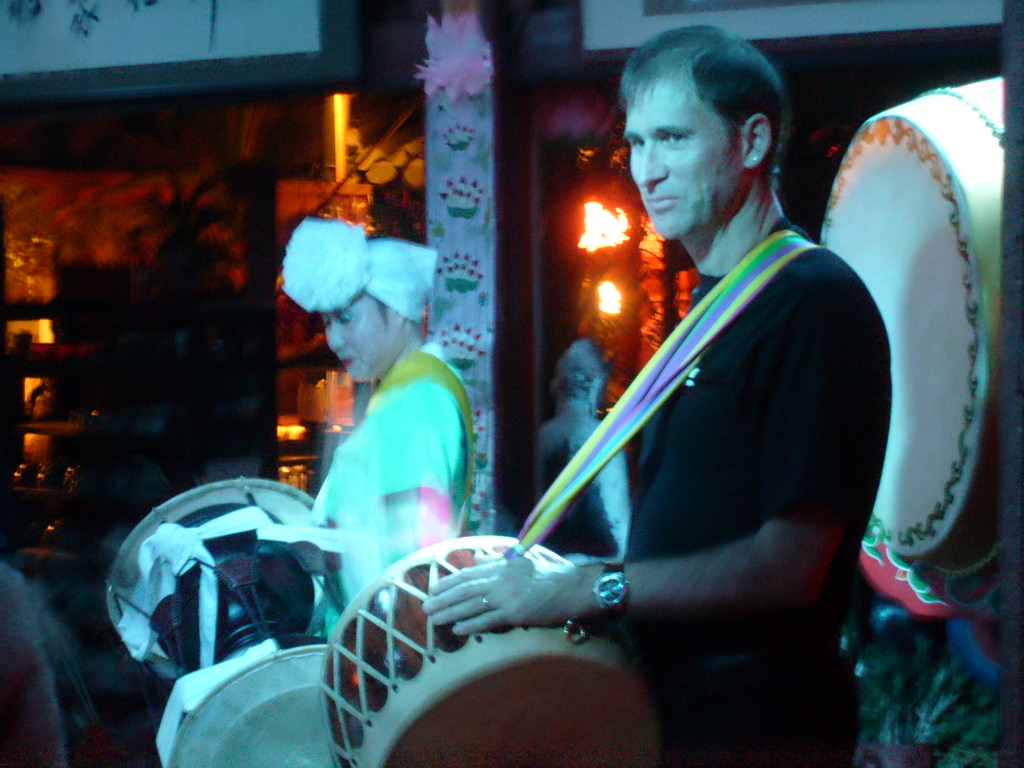
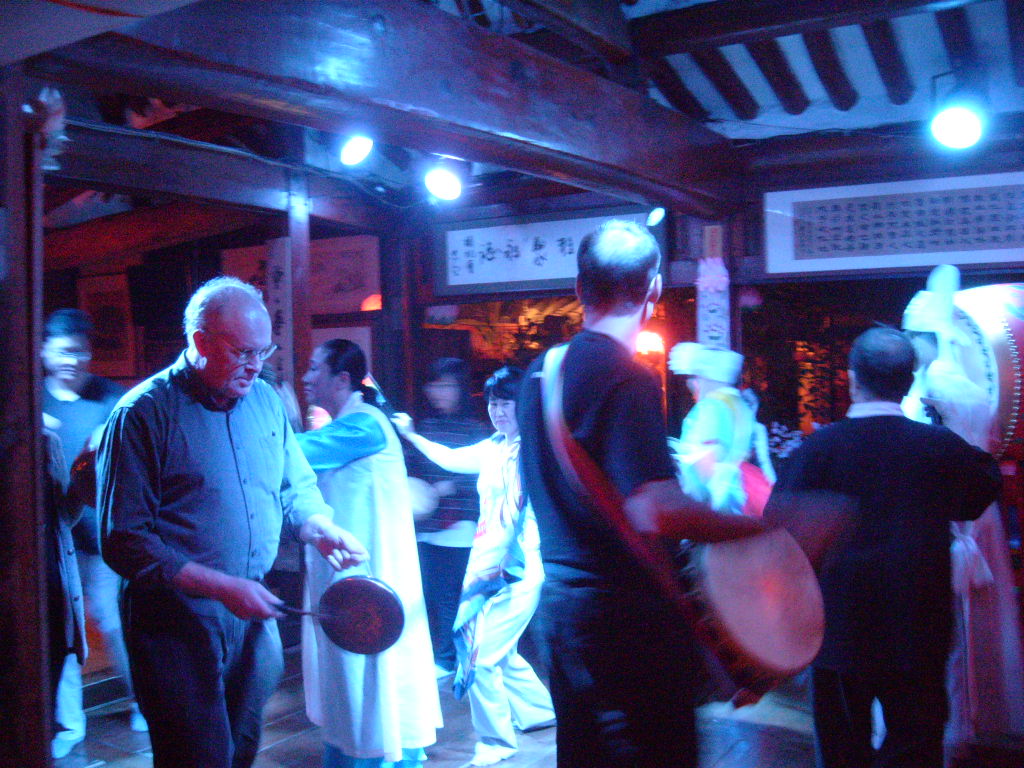
Graham had a lot of things to do during the short period of staying in Seoul.
At first, during the Chusok holidays he made a tour with his family around Gyeongju, later to Buyeo and Gongju. And he visited the Korean Human Rights Commission, the Korea Internet and Security Agency and the Korea Legal Research Institute to perform his job as a specialist in privacy protection and a champion of free access to legal information.
Of course, in respect of the collaborative project to research the data protection dispute settlement and compensation in Korea, Graham discussed with me several times.
He accepted the condition of employment as regards double affiliation, and the title in the name card and e-mail signature.
I didn't forget to arrange a campus tour for his family, and invited them to a Shabushabu restaurant in front of the main gate of Kyung Hee campus.
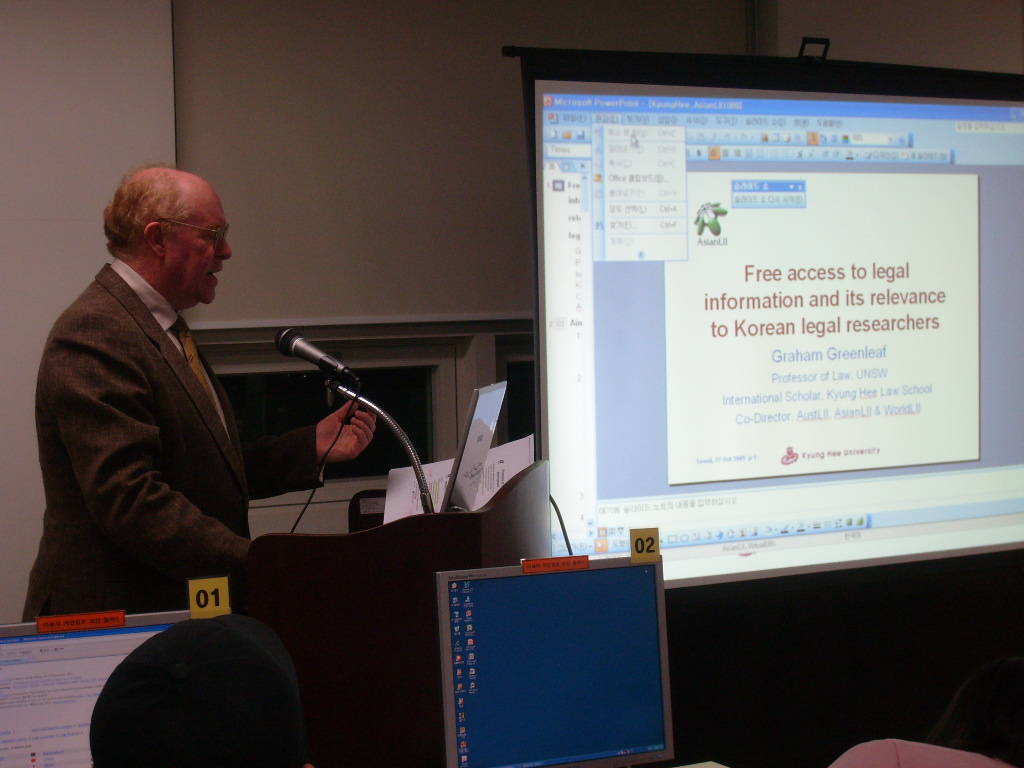
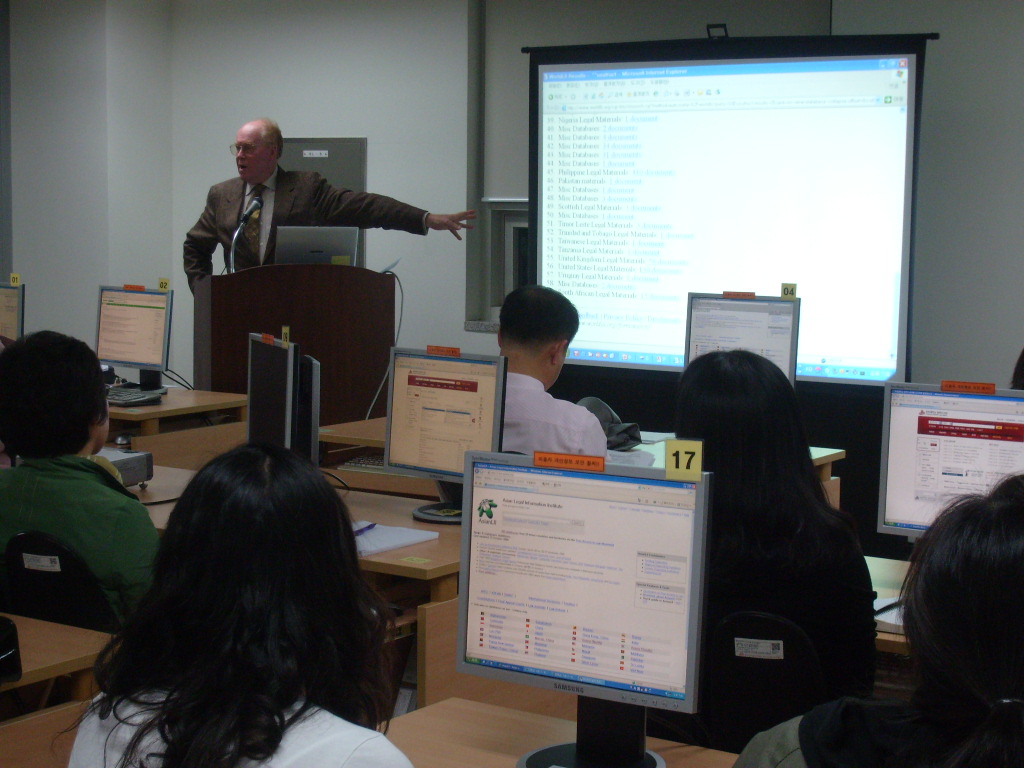
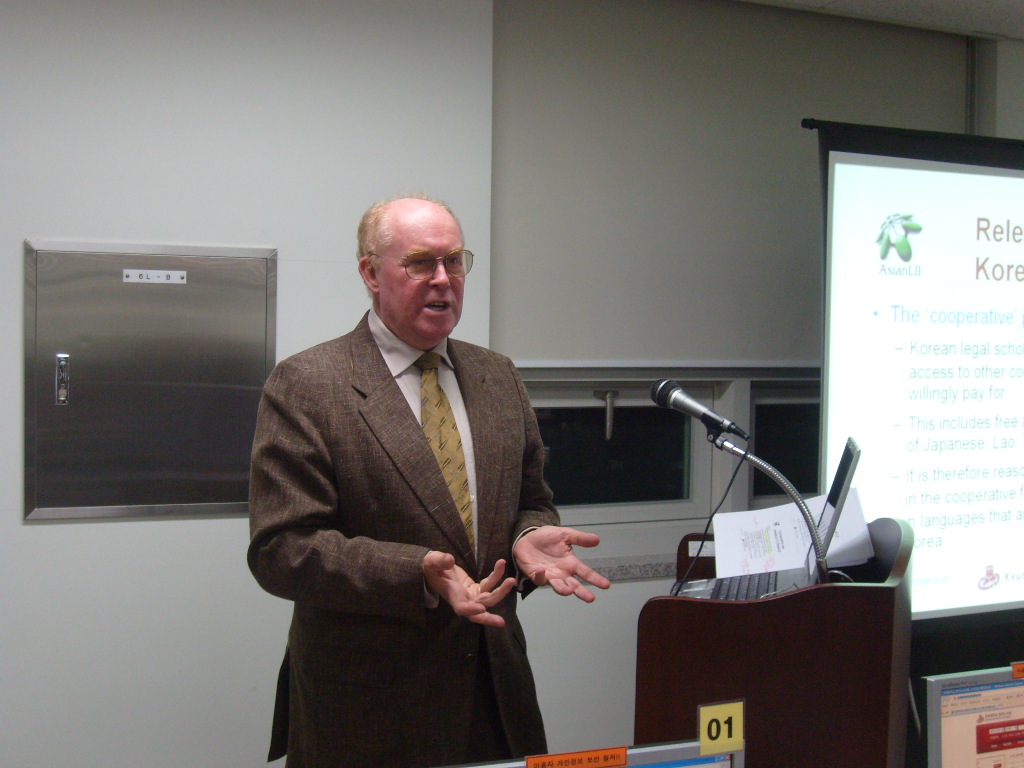
As the mid-term exam was over, Graham's special lecture, workshop and seminar just started.
At that time Prof. Lee Bygrave of Oslo University arrived in Seoul to participate in the International Conference of ICANN. We met with each other at the privacy workshop at Bellagio in the early 2006.
We got together to celebrate the old friendship. At the suggestion of Graham to have Korean traditional temple menu, we walked along the Chonggyechon Creek to Mary's Alley (Insa-dong).
Sanchon Restaurant was there to serve vegetarian dishes and render Korean traditional performance. After the show, Lee and Graham joined other guests to enjoy the Korean traditional rhythm and dances.
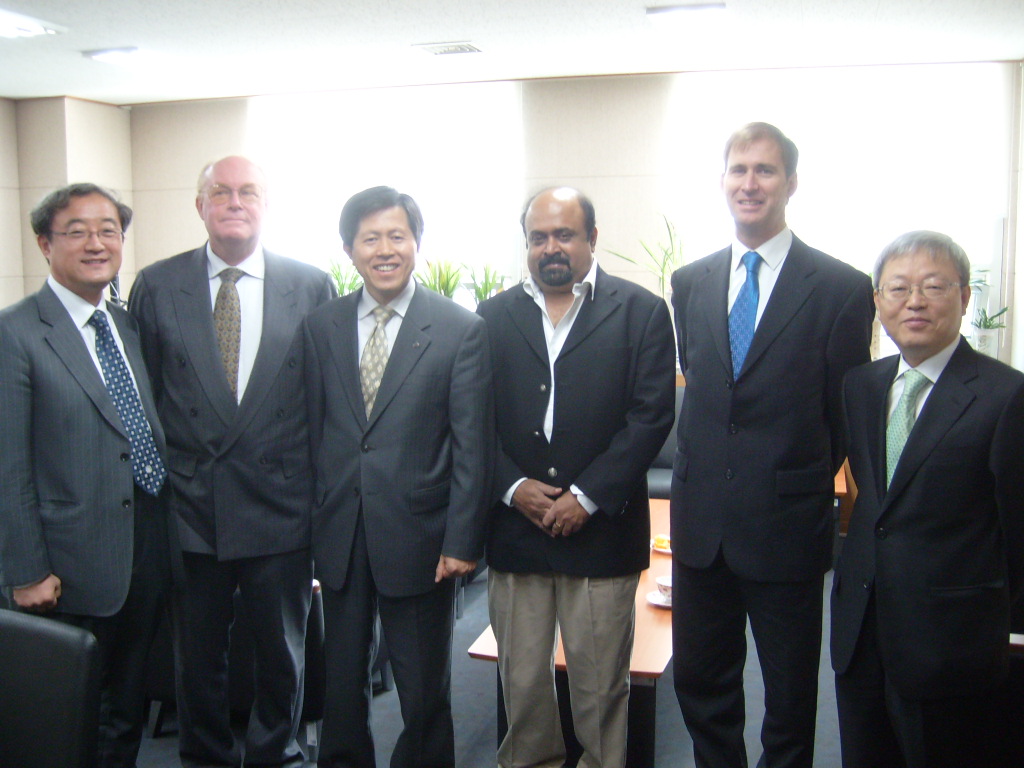
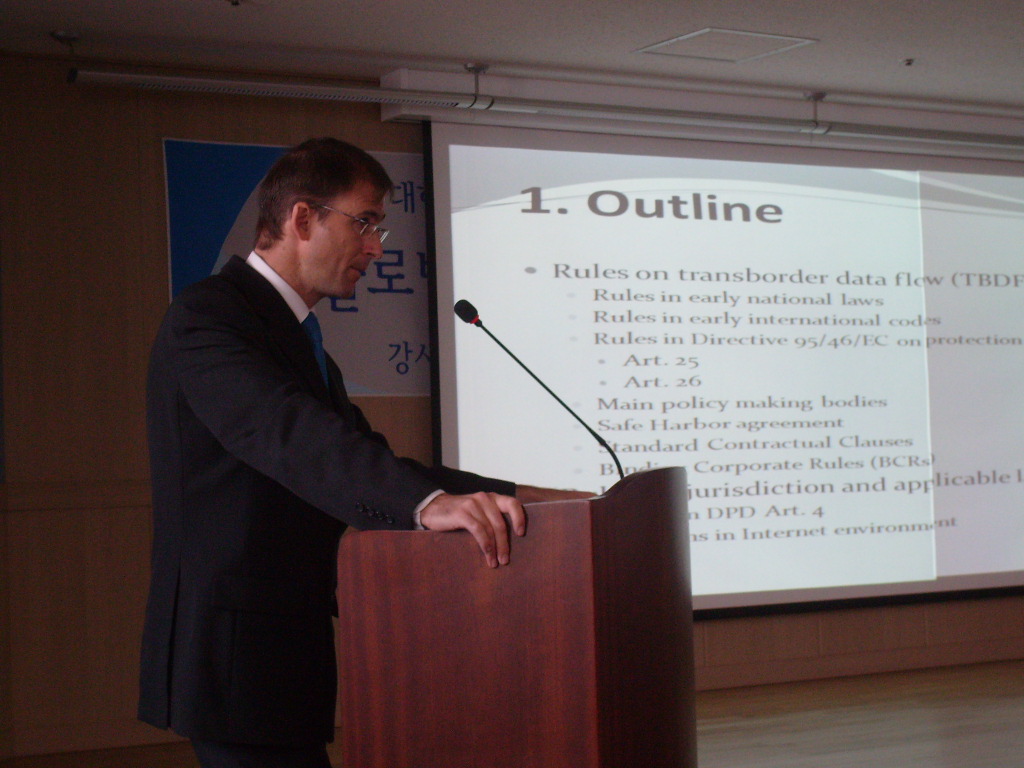
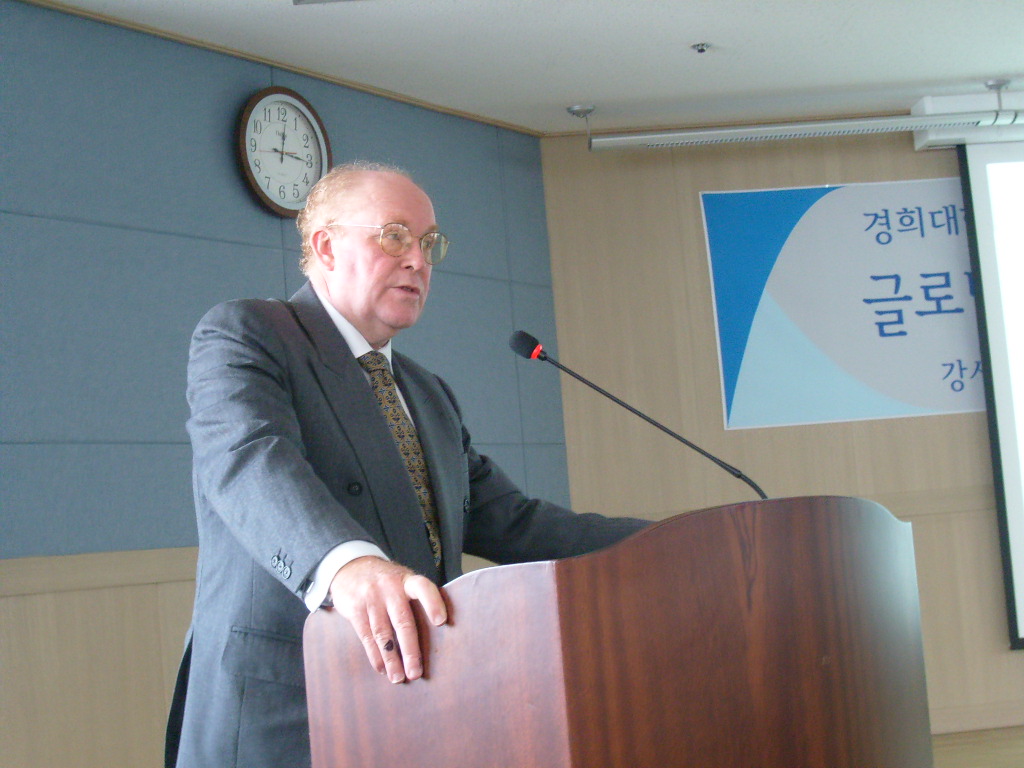
On the occasion of a workshop at the computer lab in the Law Library, Graham introduced and explained to the Korean students the Free Access to Legal Information project, initiated by him, and its major provider, Australian/Asian Law Legal Information Institute(ALII).
The "Bellagio Trio" including Professors Greenleaf and Bygrave and myself rendered a special lecture on the "Personal data export restrictions, and jurisdictional issues in a Web 2.0 world: European and Asia-Pacific perspectives at KHU Law School.
In the seminar room, there was another distinguished guest from India, Dr.V.C. Vivekanandan, Dean & Professor of Law, Rajiv Gandhi School of Intellectual Property Law, Indian Institute of Technology-Kharagpur.
Graham was fully understanding the global projects of KHU Law School, and we at the Faculty of Law were appreciating Graham's suggestions and cooperation with respect to such projects.
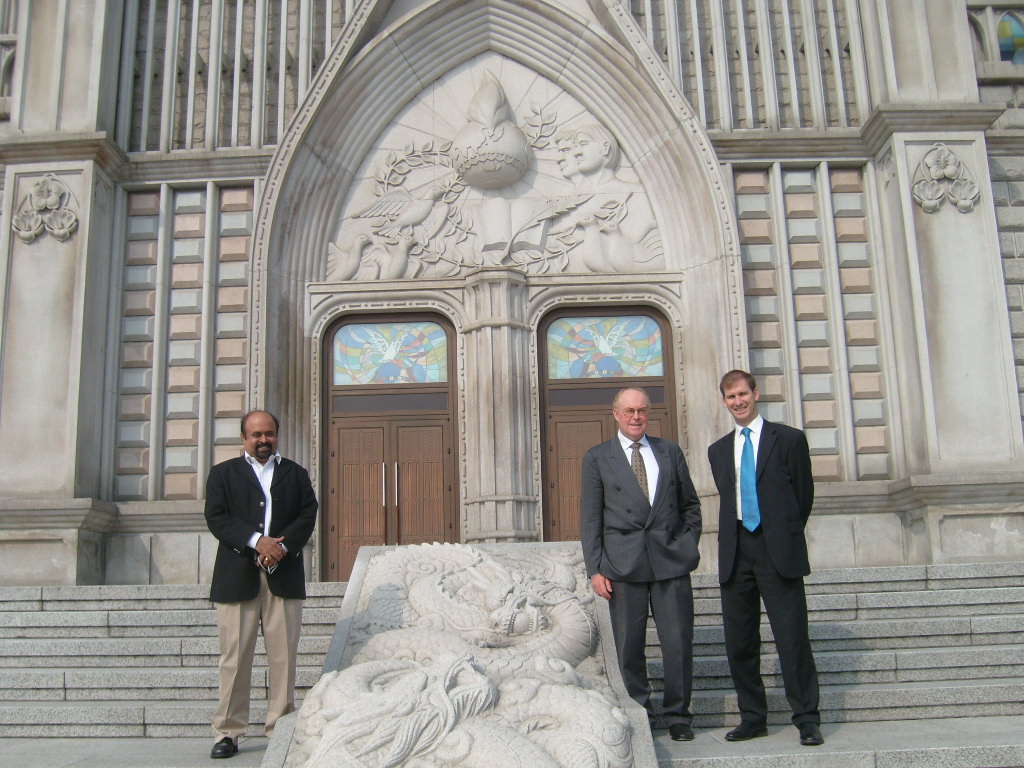
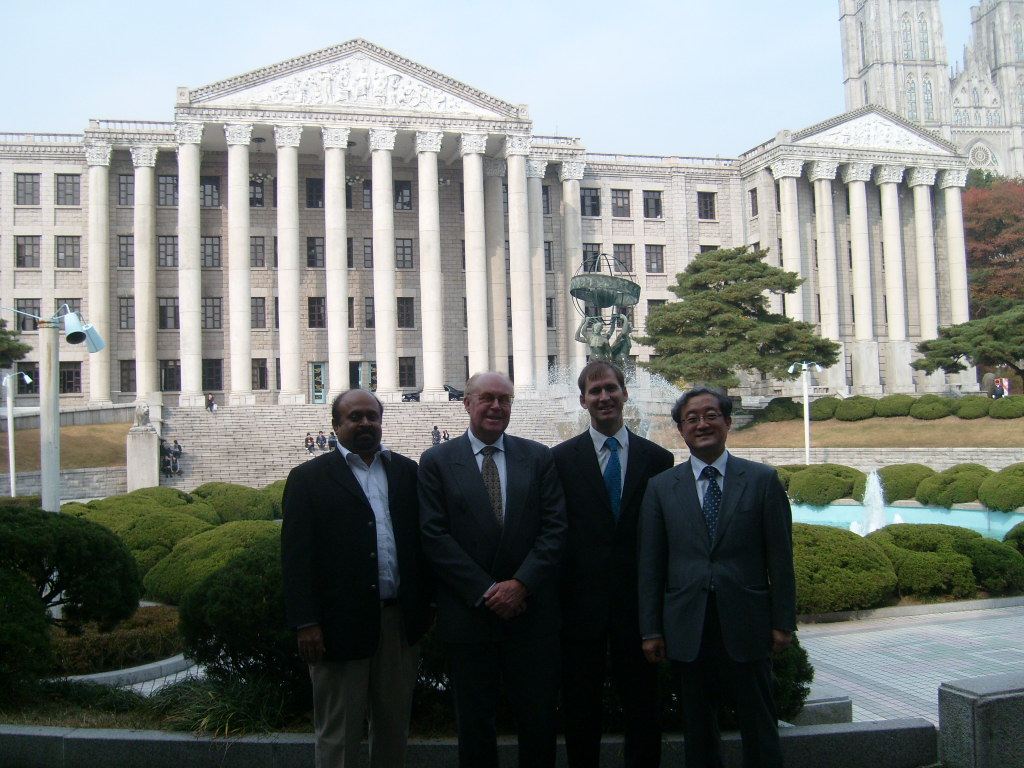
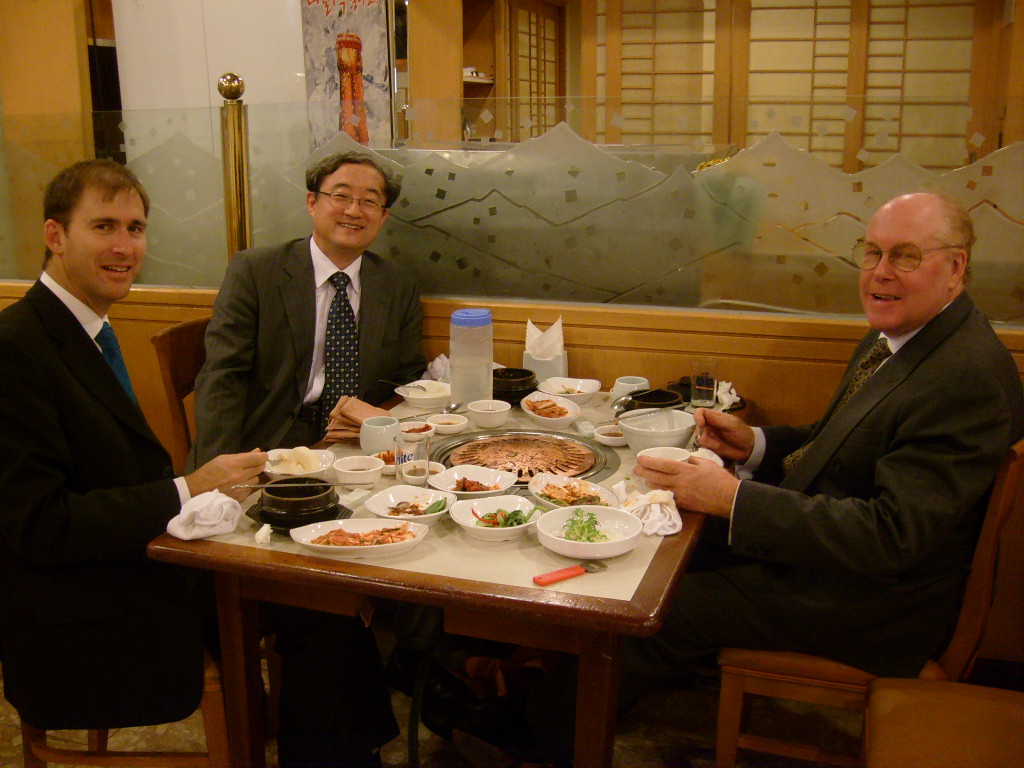
Coincidentally on October 29 and 30, 2009, the International Conference hosted by Kyung Hee Institute of Legal Studies was held at KHU Law School, and Graham was nominated by the Moderator (myself) to present the Australian case to the audience.
At the farewell party of the conference, Graham had a chance to give a farewell speech to KHU Law School personnel and other guests.
Really one month of time flied with Graham and myself.
On November 2, 2009, he declined with appreciation my suggestion to ride to, and see off at, Incheon Airport because he knew I had a class on Monday, and he had small baggages.
Two heavy boxes of books and other materials collected here in Seoul were left to be sent via separate mail.
In the Korean version
